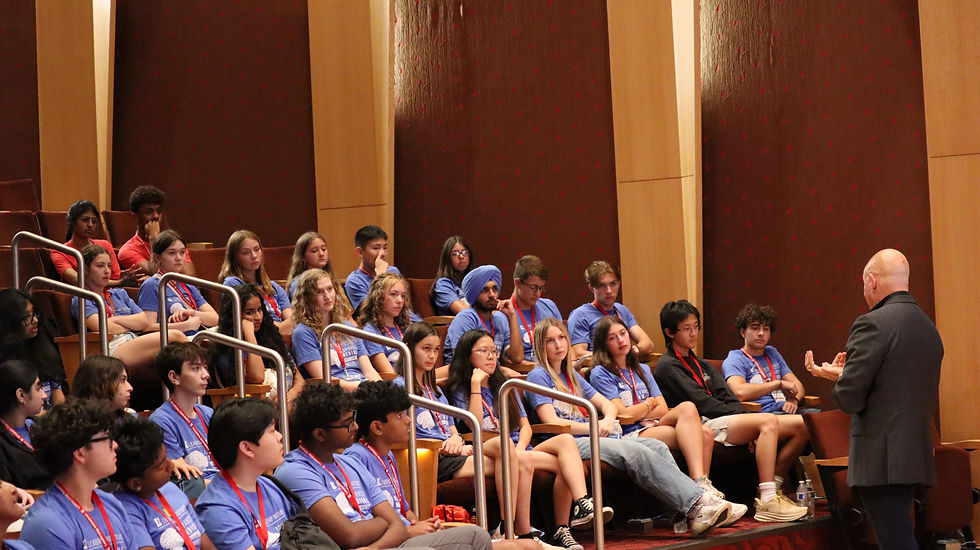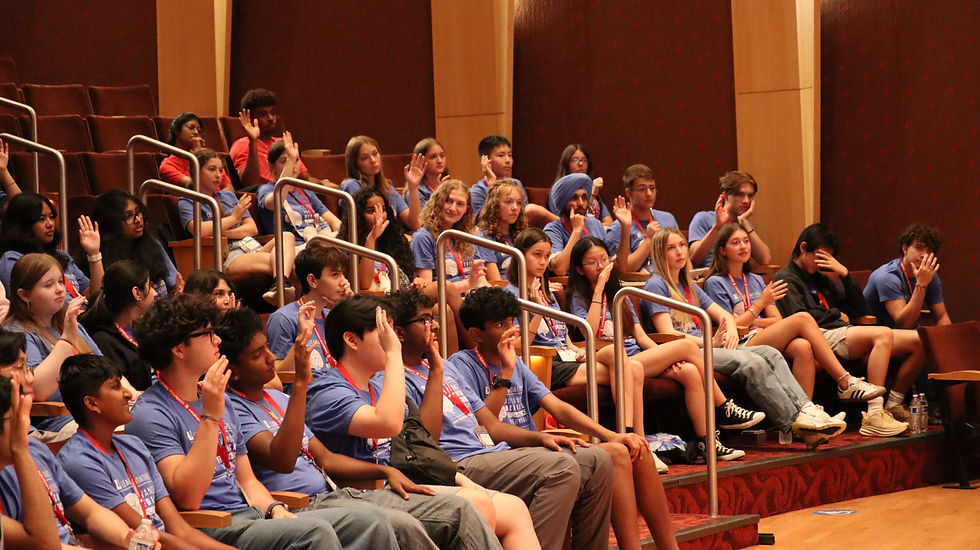Keynote Speaker: Thinking About the Way You Think About Things That Think
- Marshall Bailly
- Jul 13, 2025
- 2 min read
How do we think about the things that think? When you close your eyes, how is it that you can feel your pupils moving? What makes us tick, not just biologically, but consciously? These are the kinds of provocative questions that framed Dr. G’s keynote at the Advanced Medical Neuroscience Internship. His talk pushed us to grapple with the paradoxes of modern neuroscience by challenging both what we know and how we know it.

Modern neuroscience has given us powerful tools to study the brain’s structure and overall function. But Dr. Giordano emphasized that we still struggle with understanding how the brain gives rise to the mind, and even more so, why it does. To borrow a phrase he used: How does “grey stuff” make “great stuff”? In other words, how do billions of neurons and glial cells orchestrate something as rich and complex as thought, emotion, or identity?

Instead of asking if other beings have conscious minds, we should be asking what their minds are like. This subtle shift, what Dr. Giordano called the “not if, but what” question, invites empathy and philosophical openness.

So, what is it like to be:
A rat?
A gorilla?
A gray parrot?
Interns at the program were invited to engage with these ideas deeply, reflecting not only on what it means to think, but what it means to matter. Who counts as a “self”? Who is worthy of ethical consideration? In medicine, science, and society, the answers to these questions shape policies, treatment decisions, and even legal rights. And in a world where artificial intelligence, cognitive impairment, and non-human animal research are front and center, the stakes are only growing.
In the end, Dr. Giordano’s keynote wasn’t just about neurons or theories of consciousness. It was about responsibility. As he reminded us, knowledge is power, but power demands restraint, reflection, and moral integrity. The future of neuroscience, then, lies not just in better data or fancier machines, but in the courage to ask hard questions, and the wisdom to act on the answers with compassion and care.





Comments